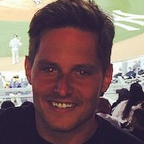CPAC 2017
The Conservative Political Action Conference (CPAC) is an annual conference for conservative activists, sponsored by a multitude of conservative organizations and think tanks. The conference is organized by the American Conservative Union (ACU) and held just outside of Washington, D.C., in National Harbor, Maryland. In addition to its speeches, the conference has a sprawling exhibit which serves as a trade show for conservative ideas.
The ACU was founded in December 1964 in response to the profound election defeat of Barry Goldwater to Lyndon Johnson. The first conference was held 10 years later, ushered in by Ronald Reagan at a time when conservatism was under siege. It was at the first CPAC where the conservative hero and future president first invoked John Winthrop’s “city on a hill” and established the fiscal framework for the conservative movement by declaring that “government has grown in size and power and cost through the New Deal, the Fair Deal, the New Frontier and the Great Society…Not even the Office of Management and Budget knows how many boards, commissions, bureaus and agencies there are in the federal government, but the federal registry, listing their regulations, is just a few pages short of being as big as the Encyclopedia Britannica.”
The most significant tradition of the conference is its presidential preference poll. Last year, the winner was Ted Cruz (40%) followed by Marco Rubio (30%). The conference’s libertarian contingency secured the distinction for Rand Paul in each of the three years prior, while Mitt Romney earned the honor in each of the President Obama victorious election years. With a newly elected Republican president, the poll was not taken at this year’s conference. The last years without the straw poll were 2001–2004 during the first term of President George W. Bush, the 2000 winner, when the conference was thus not in need of identifying a presidential candidate.
Yet the man who delivered the resounding republican victory has had a somewhat complicated relationship with the conference. Donald Trump first spoke at CPAC in 2011 when he was considering a White House run. He was partly booed at his return speech in 2015 and then canceled his scheduled speech in 2016. Some staunch conservatives harbor lingering doubts over his actual level of conservatism due to his former pro-choice and same-sex marriage positions, in addition to fears that he might expand the size of the government. Yet many of these fears were overcome by his nomination of Neil Gorsuch for the Supreme Court.
Trump’s CPAC speech, the first by a sitting president in 14 years, pledged to uphold many of his campaign promises by adhering to his nationalist ‘America First’ vision. “I’m not representing the globe, I’m representing your country,” Trump told a raucous crowd. Trump promised economic stimulation centered on new jobs, achieved by massively lower taxes and slashed regulations. He also vowed to unveil revised immigration orders, to order a massive budget request to upgrade the entire military, to repeal the Affordable Care Act, to build the border wall, and to totally obliterate the Islamic State. And in the continuance of a battle that has charted the first month of his presidency, Trump denounced the perceived scourge of fake news as the enemy of the American people.
In one of the more revealing speeches, White House chief strategist Steve Bannon explained the prioritization of the Trump administration’s agenda by introducing three verticals: national security and sovereignty, economic nationalism, and the deconstruction of the administrative state. Bannon also touted the administration’s withdrawal from the Trans-Pacific Partnership for the afforded ability to foster bilateral trading relationships to reposition the American economy with high-value jobs.
But this year’s conference also made headlines for who didn’t speak. Milo Yiannopoulos, the right-wing provocateur, was disinvited to speak after tapes resurfaced in the days prior of him condoning sexual relationships between “younger boys and older men.” Yiannopoulos, who was scheduled to sit down with Wisconsin Governor Scott Walker, became an appealing candidate for the conference due to his free speech advocacy. ACU chairman Matt Schlapp previously stated that “an epidemic of speech suppression has taken over college campuses…Milo has exposed their liberal thuggery and we think free speech includes hearing Milo’s important perspective”
Also disassociated from the event was Richard Spencer. Spencer, who coined the term ‘alternative-right’ to encompass his views of identity politics, has been widely viewed as a notorious white nationalist. Revoking Spencer’s credentials is seemingly a symbolic act by the conservative leadership to sever its perceived ties to the alt-right. Schlapp publicized the decision by avowing, “the ‘alt-right’ does not have a legitimate voice in the conservative movement.”
